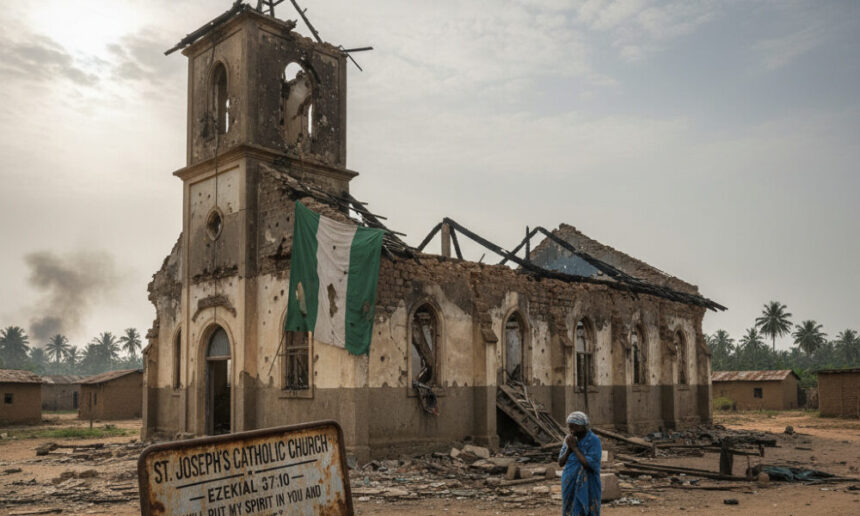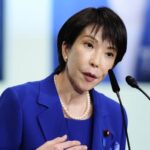A heated exchange has erupted between the Nigerian Presidency and the Christian Association of Nigeria (CAN) over claims of alleged Christian Genocide in Nigeria.
The clash comes as international pressure mounts on Nigeria, with United States lawmakers and advocacy groups pushing for sanctions against the country due to alleged systematic persecution.
Following the emergence of the Christian genocide claim in Nigeria, the Federal Government, through the Minister of Information and National Orientation, vehemently refuted the allegations, labeling them “false, baseless, despicable, and divisive.”
The Presidency also published a purported statement from the CAN, insisting that the country’s security challenges, involving banditry, terrorism, and communal clashes, are complex and multifaceted, affecting citizens regardless of faith.
However, in a sharp twist, the CAN accused the Presidency of misrepresenting its position on the alleged Christian genocide in Nigeria, describing a statement released after a recent meeting with presidential aide, Daniel Bwala, as false, misleading, and insensitive.
CAN said the Presidency’s version of the meeting gave the false impression that the association dismissed claims of a “Christian genocide” in Nigeria, a position it described as “completely untrue and unfair.”
Recall that Bwala, the Special Adviser to the President on Media and Policy Communication, visited the CAN Secretariat at the National Christian Centre, Abuja, on Monday, October 20, 2025.
Following the visit, a statement titled “Presidency Debunks Western Christian Genocide Narrative in Dialogue with CAN Leadership” circulated online, quoting CAN President, Archbishop Daniel Okoh, as allegedly describing the crisis as a “so-called genocide.”
However, in a fresh statement, Archbishop Okoh said the portrayal of the meeting was a deliberate attempt to distort facts and downplay the suffering of Christians who have been victims of repeated attacks across the country.
Giving its version of the meeting, Okoh stated: “During the visit, Barrister Bwala sought to understand CAN’s position regarding the global reactions to remarks by United States Senator Ted Cruz, who described the widespread attacks on Christian communities in Nigeria as a ‘Christian genocide.’
“He noted that both Christians and Muslims have suffered from insecurity, adding that the current administration inherited the problem and is working to address it. CAN made it clear that its position on this issue has long been established and remains unchanged.
“That portrayal is completely false and grossly unfair. The meeting was recorded by CAN’s media team, and at no point did Archbishop Okoh use such words or express such a view.
“Referring to the tragedy as a ‘so-called genocide’ trivialises the pain of countless Christians who have lost loved ones, homes, and places of worship in targeted attacks.”
Okoh added that during the meeting, CAN’s Director of Planning, Research, and Strategy, Bishop Mike Akpami, presented verified data from www.orfa.africa showing consistent and targeted attacks on Christian communities across several regions of Africa, including Nigeria.
“The Christian Association of Nigeria wishes to correct recent media reports following the visit of Barrister Daniel Bwala. At no point did we dismiss the reality of Christian persecution. Any suggestion to that effect is false.
“We call on the government to act with urgency, fairness, and empathy. Words must match action if peace and justice are to prevail,” Okoh stated in the statement.
However, in a counter-reaction, Bwala, who spoke during an interview with Arise TV, in his own claims, maintained that there is no Christian genocide in Nigeria.
The presidential aide also faulted CAN’s claim of alleged Christian genocide in Nigeria, arguing that the report, which the organisation is relying upon, is outdated.
Bwala claimed: “Anybody who believes in research will look at the methodology. That report’s data came from local media, NGOs, and unnamed development partners who, ironically, were the ones that introduced the issue of religion into the study.
“Muslims are killed by the same groups that kill Christians, Muslims are abducted by the same groups that abduct Christians, only in different proportions.
Bwala also faulted U.S. Senator Ted Cruz’s recent statement describing Nigeria as a site of Christian genocide, saying such claims were “politically motivated and detached from verified facts.”
“The Nigerian government is not part of any genocide,” Bwala said firmly, adding, “President Tinubu has been consistent in pursuing peace, security, and unity across all regions, and his administration’s actions contradict the narrative of persecution.”
Meanwhile, in similar developments, the Sultan of Sokoto, Alhaji Sa’ad Abubakar III, and the Catholic Bishop of Sokoto Diocese, Matthew Hassan Kukah, have both attempted to dismiss the claims of alleged Christian genocide in Nigeria.
The Sultan and Kukah made this known while speaking separately on Tuesday.
Speaking at the opening of the Northern Traditional Rulers Council meeting in Birnin Kebbi, the Sultan, who is also Chairman of the Council, claimed the allegations were “false and destabilising,” saying that Christians and Muslims in the North have coexisted peacefully for centuries.
“Those alleging genocide must come forward with proof,” Abubakar said. “From time immemorial, Christians and Muslims in the North are brothers. Such falsehoods are only meant to sow discord among inseparable faithful.”
He commended the Nigerian Army for its efforts in restoring peace across the country, adding: “Without the military, we wouldn’t be here today holding this meeting in peace and comfort. We must continue to encourage and support them to do more.”
Kukah, on the other hand, who spoke during the launch of the Aid to the Church in Need’s 2025 World Report on Religious Freedom, acknowledged ongoing security challenges but suggested the administration of President Bola Tinubu had shown “genuine signs of inclusion” that deserved encouragement rather than punishment.
“Acts of impunity persist,” he said, “but re-designating Nigeria a Country of Concern will hurt the initiatives we are working on with the current government. It will increase tensions, sow doubt, and allow criminals to exploit the situation.”
The cleric’s remarks followed renewed agitation in the United States after Senator Ted Cruz alleged that over 50,000 Christians had been killed in Nigeria since 2009.
Kukah said while Nigeria was “still bleeding,” Tinubu’s early steps had helped rebuild trust, citing the appointment of Christians to key positions in the current administration, even as the ‘Christian Genocide’ claims, counter-claims and uproar continue to fester in global headlines.





